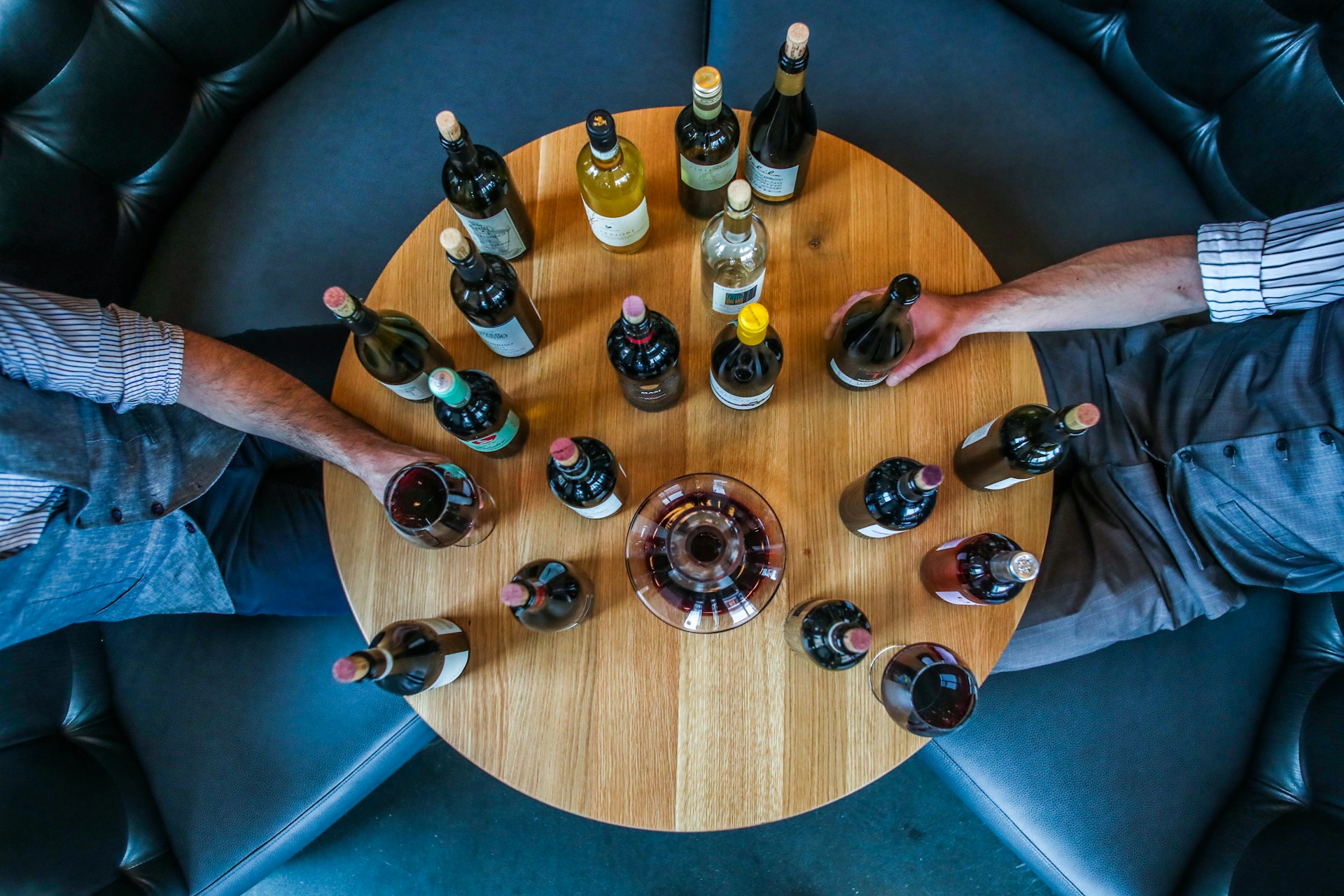Starting a virtual wine tasting business in the UK requires more than just a passion for wine. Understanding the intricacies of liquor licensing is essential to operate legally and effectively. This guide will unravel the licensing landscape, equipping you with the knowledge to navigate regulations, avoid pitfalls, and ensure a successful venture. Whether you’re a seasoned sommelier or a wine enthusiast, mastering these essential requirements will elevate your business and enhance your customers’ experience.
Understanding UK Liquor Licensing Laws
Navigating the UK liquor licensing landscape is crucial for any business involved with alcohol. The Licensing Act 2003 is the cornerstone of this framework, outlining the legal requirements for the sale and supply of alcohol. This act mandates that any establishment or event, including virtual wine tastings, must adhere to specific licensing protocols.
Also to read : Mastering Import Regulations: A Comprehensive Guide for Luxury Watch Retailers in the UK
Under the Licensing Act 2003, there are several types of licenses one might need. For instance, a premises licence is required for any location selling alcohol, while a personal licence is necessary for individuals authorising the sale of alcohol. Virtual events aren’t exempt; organisers must ensure they have the appropriate licences to operate legally.
Compliance with local laws is paramount. Failure to adhere to licensing requirements can result in severe penalties, including fines or the revocation of licences. Businesses must stay informed about any changes in legislation to maintain compliance. This vigilance not only safeguards against legal repercussions but also builds trust with customers and the community.
In the same genre : Mastering the UK”s Planning Permission Journey for Your Renewable Energy Project: A Comprehensive Guide
Understanding these legal requirements and ensuring compliance is essential for any business engaging in the sale or distribution of alcohol in the UK.
Types of Licenses for Virtual Events
In the realm of event licensing, understanding the types of licenses required for virtual events is essential. A premises license is typically needed for any physical location selling alcohol. However, virtual events have unique considerations.
For temporary or one-off virtual events, a Temporary Event Notice (TEN) may be more appropriate. A TEN allows for the sale of alcohol at events lasting no more than 168 hours. This is particularly useful for virtual wine tastings or online festivals, where a full premises license might not be necessary or practical.
The distinction between on-trade and off-trade licenses is also important. On-trade licenses cover the sale of alcohol for consumption on the premises, whereas off-trade licenses pertain to alcohol sold for consumption off the premises. For virtual events, understanding whether your event falls under on-trade or off-trade is crucial for compliance.
Organisers must carefully assess the nature of their virtual event to determine the appropriate licensing. This ensures adherence to legal requirements and helps avoid potential penalties. By choosing the right type of license, event organisers can operate within the law while providing enjoyable experiences for attendees.
Application Process for Licenses
Understanding the license application process is crucial for businesses planning to sell alcohol. Here’s a step-by-step guide to navigate the procedure effectively.
Step-by-Step Guide
- Determine the License Type: Identify whether you need a premises or personal license based on your business activities.
- Prepare Documentation: Gather necessary documents, including a detailed plan of the premises, proof of identity, and a criminal record check. Accurate documentation is crucial for a successful application.
- Submit the Application: Complete the application form, ensuring all sections are filled out correctly. Submit it to the local licensing authority along with the required documentation.
- Pay Fees: Be prepared to pay the appropriate fees, which vary depending on the type of license and the size of the premises.
- Public Notice: Display a public notice of your application on the premises and in a local newspaper to inform the community.
- Await Decision: The timeline for processing applications can range from several weeks to a few months, depending on the complexity of the application and local authority workload.
By following this step-by-step guide, businesses can ensure a smooth application process, reducing the risk of delays or rejections.
Regulations Specific to Virtual Wine Tastings
Navigating the virtual events regulations for wine tastings requires a keen understanding of the laws governing online alcohol sales. These regulations ensure that even in a digital space, businesses comply with the same standards as physical establishments.
One of the most critical aspects is age verification. Online platforms must implement robust systems to verify the age of participants before any transaction. This can include digital ID checks or third-party verification services to prevent underage sales, ensuring compliance with legal requirements.
Additionally, there are specific restrictions on delivery and shipping of alcohol. Businesses must ensure that alcohol is only shipped to regions where it is legally permissible and that it is received by someone of legal drinking age. This often involves using couriers with age verification processes upon delivery.
Understanding these regulations is essential for businesses to operate legally and avoid penalties. By focusing on compliance, virtual wine tastings can offer a seamless and lawful experience for both the organisers and participants. As the popularity of remote tastings grows, staying informed about the latest regulatory changes is crucial for success in this evolving market.
Best Practices for Compliance
Ensuring compliance with UK liquor licensing laws is essential for any business involved in alcohol delivery or service. Here are some effective compliance tips to help navigate these regulations.
Strategies for Ensuring Compliance
- Understand Licensing Requirements: Familiarise yourself with the specific licenses needed for your business operations, whether for premises or virtual events. This ensures you operate within legal boundaries.
- Implement Age Verification: Use robust digital systems to verify the age of customers, preventing underage sales. This is crucial for both online platforms and physical deliveries.
Best Practices for Responsible Service
- Staff Training and Awareness: Regularly train staff on the importance of responsible alcohol service. This includes recognising signs of intoxication and understanding the legal implications of serving alcohol to minors.
- Monitor Alcohol Delivery: Ensure that deliveries are made to individuals of legal drinking age. Employ couriers with age verification processes to maintain compliance.
By adopting these best practices, businesses can ensure they meet legal requirements while promoting a culture of responsible alcohol service. This not only protects the business from potential penalties but also enhances the customer experience by prioritising safety and legality.
Common Challenges Faced by Virtual Wine Tasting Businesses
Virtual wine tasting businesses encounter several business challenges, particularly in the realm of licensing. Licensing hurdles are prevalent, as these businesses must navigate complex regulations that differ across regions. The requirement to secure appropriate licenses for both the sale and delivery of alcohol can be daunting, especially for those unfamiliar with local laws.
Navigating local council requirements is another significant challenge. Each council may have distinct rules, making it essential for businesses to understand and comply with specific local regulations. This often involves engaging with local authorities to ensure all licensing conditions are met, which can be time-consuming and complex.
The impact of COVID-19 has further complicated licensing regulations. During the pandemic, many councils implemented temporary measures to support businesses, such as relaxed licensing conditions. However, as these measures evolve, businesses must stay informed about any changes to ensure ongoing compliance. This dynamic environment requires agility and a proactive approach to adapt to shifting regulations.
These operational issues highlight the importance of staying informed and seeking expert advice when necessary. By understanding and addressing these challenges, virtual wine tasting businesses can better navigate the regulatory landscape and focus on delivering exceptional experiences to their customers.
Case Studies of Successful Virtual Wine Tasting Businesses
Exploring success stories in the virtual wine tasting industry provides valuable insights into effective strategies and best practices. Several businesses have successfully navigated the complex licensing landscape, setting benchmarks for others to follow.
One notable case is a UK-based virtual wine tasting company that leveraged key strategies to ensure compliance and success. They meticulously adhered to licensing requirements by engaging legal experts to guide them through the process. This proactive approach not only ensured they met all legal obligations but also built credibility with their audience.
Another success story involves a company that implemented innovative age verification systems, ensuring all participants were of legal drinking age. This commitment to responsible service was a cornerstone of their operation, fostering trust and enhancing their reputation.
Lessons learned from these industry leaders highlight the importance of staying informed about regulatory changes and maintaining open communication with local authorities. By prioritising compliance and customer experience, these businesses have set a standard for others in the industry.
These case studies illustrate that with the right approach, virtual wine tasting businesses can thrive, offering enjoyable and legally compliant experiences to their customers.
Resources for Further Assistance
When navigating the complexities of UK liquor licensing, accessing official resources is invaluable. The UK government website provides comprehensive information on the Licensing Act 2003, offering guidance on obtaining the necessary licenses. These resources are essential for understanding the legal framework and ensuring compliance.
Local licensing authorities play a crucial role in the application process. Each authority has specific contact details available on their respective websites, enabling businesses to seek tailored advice and support. Engaging directly with these authorities can clarify licensing requirements and streamline the application process.
Industry organizations also offer invaluable support. The British Institute of Innkeeping (BII) and the Wine and Spirit Trade Association (WSTA) are prominent examples. These organizations provide guidance, training, and advocacy for businesses in the alcohol industry. They offer resources to help businesses understand the nuances of licensing laws and maintain compliance.
For those involved in virtual wine tastings or other online alcohol sales, these industry organizations can offer insights into best practices and emerging trends. By leveraging the expertise of these bodies, businesses can navigate the regulatory landscape more effectively, ensuring they meet all legal obligations while enhancing their operations.
Future Trends in UK Liquor Licensing
As the UK alcohol industry trends evolve, businesses must anticipate changes in future regulations and adapt to new market developments. One significant prediction is the potential for more flexible licensing laws to accommodate the rise of virtual events and online alcohol sales. This shift could lead to streamlined processes for obtaining licences, making it easier for businesses to operate legally in a digital landscape.
Emerging trends indicate a growing demand for virtual experiences, prompting regulators to consider how existing laws apply to online platforms. This may result in new guidelines specifically tailored to virtual events, ensuring that businesses can comply with licensing requirements while leveraging digital opportunities.
Technology is poised to play a crucial role in compliance and licensing. Innovations such as blockchain for secure age verification and AI-driven analytics for monitoring sales could enhance adherence to regulations. These technological advancements not only promise to simplify compliance but also offer businesses a competitive edge by improving operational efficiency.
Staying informed about these industry trends and potential regulatory changes is essential for businesses to remain compliant and competitive. By embracing technological solutions and anticipating future developments, businesses can navigate the evolving landscape of UK liquor licensing with confidence.
Conclusion and Next Steps
As you embark on the journey of starting a virtual wine tasting business, understanding the intricacies of UK liquor licensing is crucial. From obtaining the necessary licenses to implementing robust operational strategies, each step is vital for compliance and success.
Key points covered include the importance of securing the appropriate licenses, whether for premises or virtual events, and the necessity of age verification systems to prevent underage sales. These foundational elements ensure your business operates within legal boundaries.
For your next steps, focus on developing a comprehensive business planning strategy. This should include identifying the licenses you need, setting up age verification processes, and engaging with local licensing authorities for tailored guidance. Staying informed about licensing changes is equally important, as regulations may evolve with the growing popularity of virtual events.
Additionally, consider leveraging technology to streamline operations and compliance. Innovations such as AI-driven analytics can enhance efficiency and ensure adherence to licensing requirements. By prioritising these operational strategies, you can build a reputable and legally compliant virtual wine tasting business.
By following these guidelines, you can confidently navigate the complexities of liquor licensing and create a successful venture in the virtual wine tasting industry.











